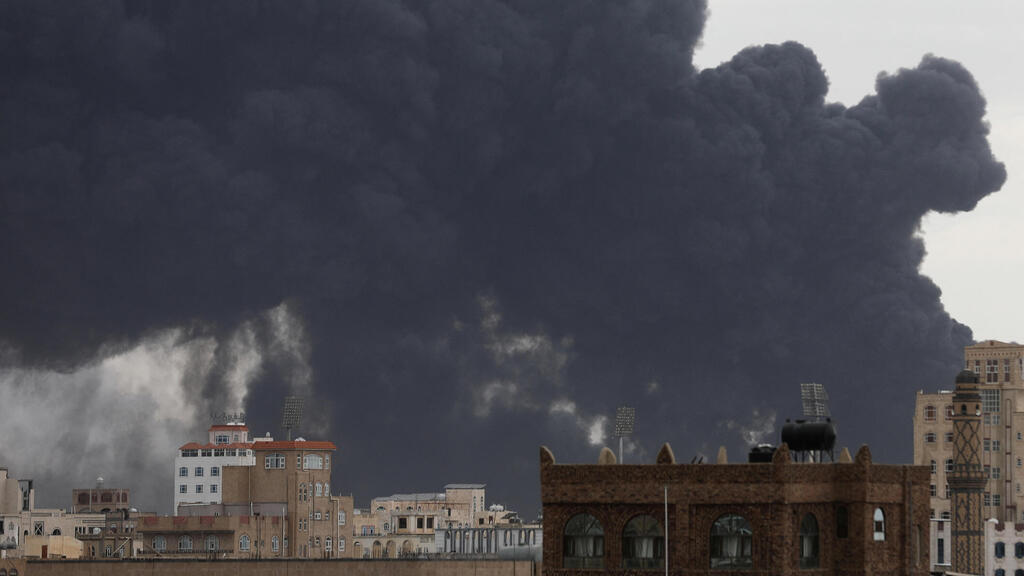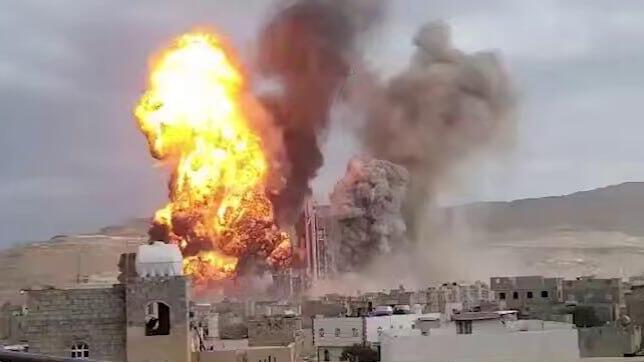After their ballistic missile struck near Ben Gurion Airport, the Houthis threatened to impose an aerial blockade on Israel, following the group's previous disruption of maritime traffic in the Red Sea.
Now, with Tuesday’s airstrikes on the Sanaa airport and Monday’s attack on the port of Hodeidah—part of Operation “Port City”—Israel is effectively imposing its own aerial and maritime siege on the Houthis.
Sanaa’s airport is the only international airport under Houthi control and also serves as a key channel for Iranian cargo transfers. The combination of Monday’s bombing of the Hodeidah seaport and Tuesday’s strike on the airport—if it is indeed out of service—cuts off the Houthis from any real ability to conduct international cargo or passenger transport. That would leave them almost entirely dependent on the port and airport in Aden, both controlled by Yemen’s internationally recognized government, which is hostile to the Houthis.
This won’t be a complete blockade—light aircraft and small cargo vessels will likely still be able to access certain docking points. However, the movement of fuel and ballistic missiles has likely been halted. The Houthi-controlled territory is heavily reliant on international aid, and without its flow, famine conditions could develop in some rebel-held areas.
<< Get the Ynetnews app on your smartphone: Google Play: https://bit.ly/4eJ37pE | Apple App Store: https://bit.ly/3ZL7iNv >>
While the full outcome of the strike has yet to be confirmed, runways at the Sanaa airport can likely be repaired relatively quickly—unless Israel used delayed-action bombs, which, if still embedded in the tarmac, would render the airstrip unusable. The IDF has claimed the airport is fully shut down.
Israel’s operation, in parallel with the U.S. campaign against the Houthis, is also motivated by the differing strategic focuses: while the U.S. has targeted primarily military infrastructure or facilities supporting the Houthi war effort (such as missile factories, drone assembly plants, and senior commanders), Israel has justification to target civilian infrastructure, given that the Houthis have directly attacked civilian sites in Israel.
The unusual Arabic-language warning issued by the IDF spokesperson came after the previous Israeli strike on the airport in December, during which the head of the World Health Organization was present and later expressed anger over the lack of advance notice. At the time, the UN’s humanitarian coordinator for Yemen also stated that “Sanaa airport is the point of entry and exit for all international humanitarian aid workers operating in northern Yemen.”





